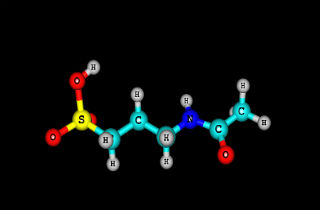No.
Acamprosate does not produce euphoric effect. It also has no addictive properties and does not lead to tolerance or dependence in people.
If you are interested in more information about acamprosate, the use and benefits of this medication, or possible adverse effects … read on. If you are left with any questions about the effectiveness of acamprosate after reading the article, we invite you to post them in the comments section at the end of the page.
Acamprosate chemistry and use
Acamprosate is a medication that is used in the treatment of alcohol dependence and is also known by the brand name Campral. Scientists still do not completely understand how acamprosate works in the brains of alcohol-dependent people, but it is believed to block glutaminergic N-methyl-D-aspartate receptors, while activating gamma-aminobutyric acid type A receptors.
This medication can help dependent people maintain abstinence from alcohol, especially when used in combination of support groups, psychological counseling sessions or treatment programs. It helps reduce cravings for alcohol; even chronic alcoholics have reported a loss of interest in drinking when using acamprosate. It is also believed to address symptoms of protracted withdrawal for long term drinkers, reducing the possible discomfort of mood and sleep disorders.
What’s in acamprosate?
Each acamprosate tablet is chemically composed of acamprosate calcium 333mg, which is equivalent to 300mg of acamprosate. The tablets also contain inactive ingredients, such as: crospovidone, microcrystalline cellulose, magnesium silicate, sodium starch glycolate, colloidal anhydrous silica, magnesium stearate, talc, propylene glycol, and sulfites residue.
How does acamprosate work?
There are significant brain changes in people who drink a great deal of alcohol over a long span of time. Although acamprosates mechanism of action is not quite understood, it appears to normalize the brain activity by restoring the chemical balance that has been disrupted by frequent alcohol consumption. It reduces alcohol cravings, but doesnt cause sickness if alcohol is ingested. Most importantly, acamprosate can influence whether or not you feel rewarded by the idea of drinking alcohol or actually having a drink.
However, acamprosate does not help people quit drinking and does not treat the withdrawal symptoms experienced during alcohol detox. In fact, it helps patients who have already gone through withdrawal to maintain their abstinence. Further, acamprosate should not be used as THE ONLY way to cope with alcohol cravings; it is best used when in combination with psycho-social support therapies.
Mixing acamprosate with other substances
In different clinical studies, acamprosate has not been found to cause any alcohol interactions. In fact, if you relapse and start drinking again, doctors will encourage you to continue taking acamprosate. Further, it does not affect the action of most administered medications, including: disulfiram, desipramine, diazepam, imipramine, naltexol, naltrexone, nordiazepam, and SSRIs (Selective Serotonin Reuptake Inhibitors). Also, a person taking acamprosate will have no need for dose adjustment for any of the listed medications.
Acamprosate is eliminated from the body through renal elimination only. So, taking medications such as aminoglycoside antibiotics (gentamycin and amikacin), that may be toxic to the kidneys, should be avoided. You should inform your medical clinician of all medications you are currently taking in order to avoid any possible interactions.
Acamprosate adverse effects
Adverse effects from acamprosate are very uncommon, but can be quite serious. Family members and caregivers should be informed about the possible occurrence of these effects and report any indicating signs to the prescribing doctor or substance abuse treatment counselor. These symptoms include:
- abnormal dreams
- allergic reaction
- depression
- hallucinations
- self-harming and intentional injury
- suicidal ideation
- suicide attempt
Risks of acamprosate addiction and abuse
Acamprosate does not have any habit-forming properties, nor is it a drug of abuse. It doesn’t cause users to be physically or psychologically dependent, and its not a controlled substance in the U.S. Patients who were taking the drug have developed no known tolerance or dependence, and no withdrawal symptoms have been displayed upon acamprosate cessation. This medication also carries little overdose risk.
Questions about acamprosate
If you are struggling to quit drinking, it may be time to ask for help. Acamprosate has been proven very useful in the alcohol addiction recovery process, especially for people who suffer from chronic alcoholism or who have trouble resisting cravings for alcohol.
If you would like to quit alcohol or you have someone you love and you think acamprosate treatment can help fight their addiction, you can contact us for more information. We welcome your questions and comments in the section bellow. We try to provide a prompt and personal answer to all legitimate enquiries.









Related Posts